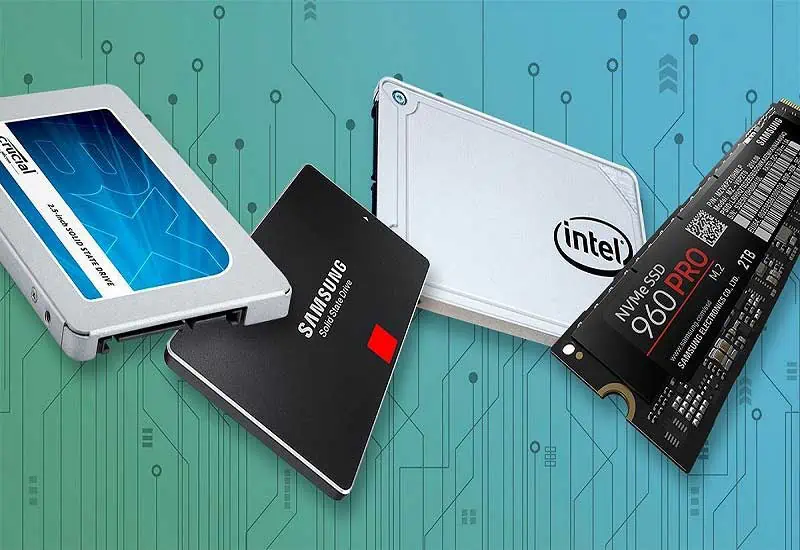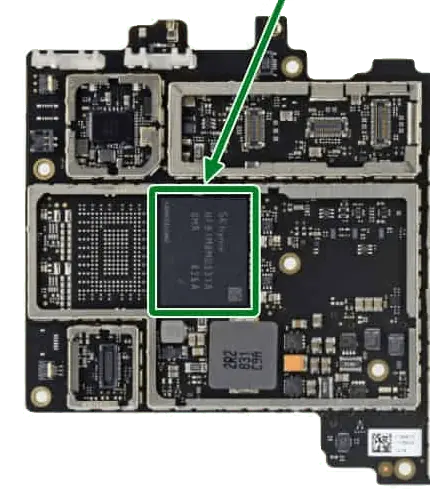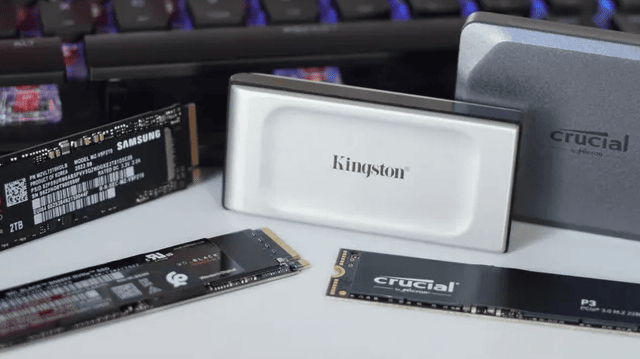Overcoming the complexities of solid-state drive (SSD) and hybrid SSHD data recovery can present unique challenges. Data Rescue MDs SSD data recovery professionals have proven expertise and operate within a specialized lab environment to recover data from complex NAND flash devices. Whether you are faced with a failing or “dead” SSD or SSHD, our approach ensures optimal recovery outcomes. Contact us to initiate your Free evaluation!
Solid-State Drive (SSD) Data Recovery
What is an SSD or SSHD?
Solid State Drives (SSDs) use NAND (non-volatile) flash memory chips similar to those used in USB Flash drives along with complex storage algorithms operating on a controller device to quickly store and recall data as it is written to and read from the SSD or SSHD when they are working properly. SSHDs use a hybrid composition of one or more NAND memory modules as well as electro-mechanical “spinning” hard drive components. There are hundreds of proprietary SSD and SSHD designs and a myriad of form factors (i.e., mSATA, SlimSATA, SATA, M.2 SATA, M.2 NVMe, Apple Gen 1, 2 AHCI SSDs, Apple Gen 3 and forward PCIe/NVMe SSDs, Apple embedded SSDs, Microsoft Surface embedded SSDs, and more).

Why SSDs and SSHDs Fail
The vulnerabilities of SSDs and SSHDs are multifaceted, some factors that can cause SSDs and SSHDs to fail are:
- Firmware Corruption or Failure
- Physical or Electrical Damage
- Logical Failure Due to Bad Sectors
- Memory Wear Caused by Excessive Use
- Damage from Viruses and Malware
- Fires, Floods and Other Disasters
- Liquid Damage
- Component Failure
- Accidental File Deletion
What To Do When a Solid-State Drive Fails?
If you fear that your solid-state drive (SSD) or SSHD is failing or has failed, power down the device immediately. Continuing to power or use a failing device can cause corruption and may reduce the probability of a successful recovery. Furthermore, avoid using off-the-shelf data recovery software or disk utilities on your solid-state drive as these programs can cause further issues by attempting to write data to your failing device. Contact Data Rescue MDs immediately to recover data from your failed SSD or SSHD.
Chip-off Data Recovery – Embedded SSDs.
Newer models of the Apple MacBook and Microsoft Surface use embedded SSDs. This means that the SSD storage chips and storage control devices are soldered directly to the computer’s main logic board making this a complex recovery in which normally one or more BGA devices comprise the SSD storage. To complicate matters the storage is normally encrypted with BitLocker on the MS Surface Pro and Filevault on the MacBook. Time and again, Data Rescue MDs’ data recovery specialists have successfully performed logic board and chip-off recoveries on the later models of the Microsoft Surface and Apple MacBook with embedded SSDs, including liquid-damaged MacBooks.

Common Solid-State Drives Data Rescue MDs Has Recovered:
- Apple
- ADATA
- AMD
- Apacer
- Apotop
- Corsair
- Crucial
- DEXP
- Edge
- GOODRAM
- HGST
- HP
- INDILINX
- Intel
- KingDian
- Kingspec
- Kingston
- Lexar
- LiteOn
- Micron
- Microsoft
- OCZ Technology
- Patriot
- Plextor
- PNY
- QUMO
- RevuAhn
- Samsung
- SanDisk
- Seagate
- Silicon Power
- Smartbuy
- Transcend
- Western Digital
- And others
Contact Data Rescue MDs immediately to begin the data recovery process of your failed SSD or SSHD.
WE CAN HELP
Call our specialists at (847) 461-3282 or complete our form to begin the process of recovering your data.




